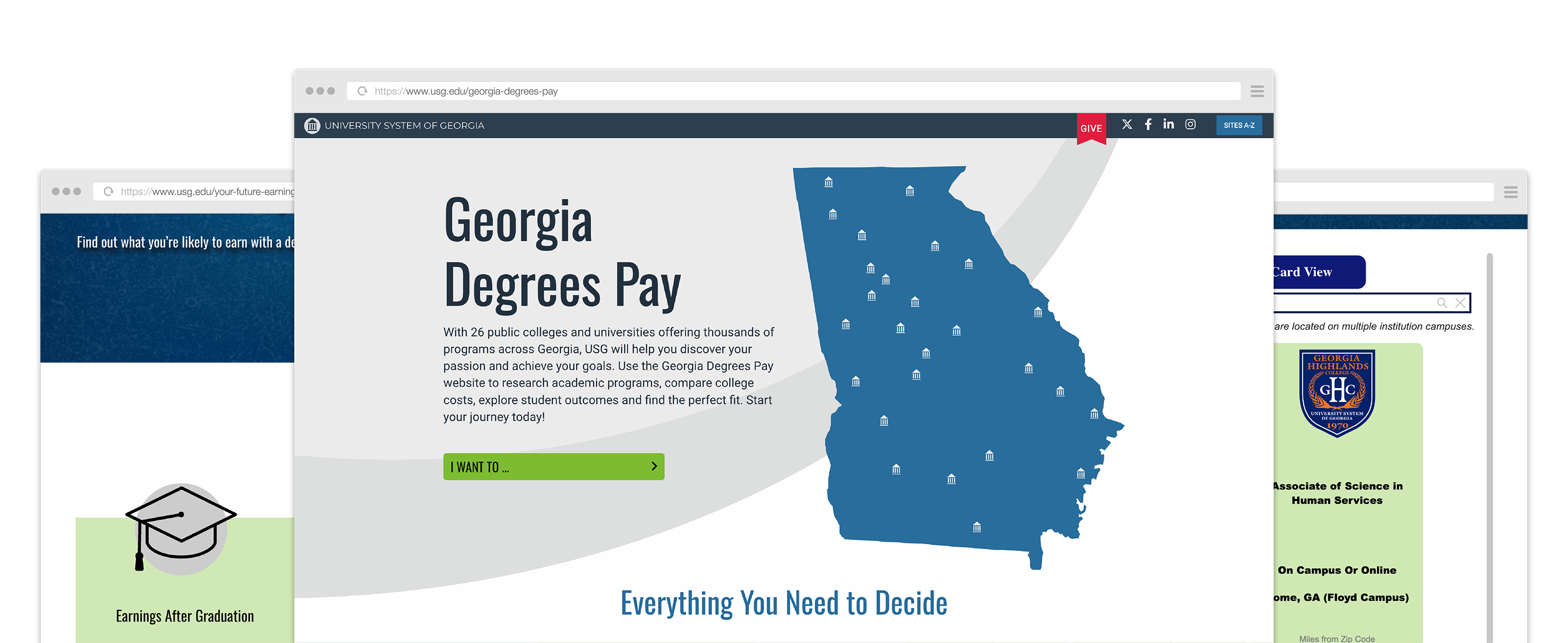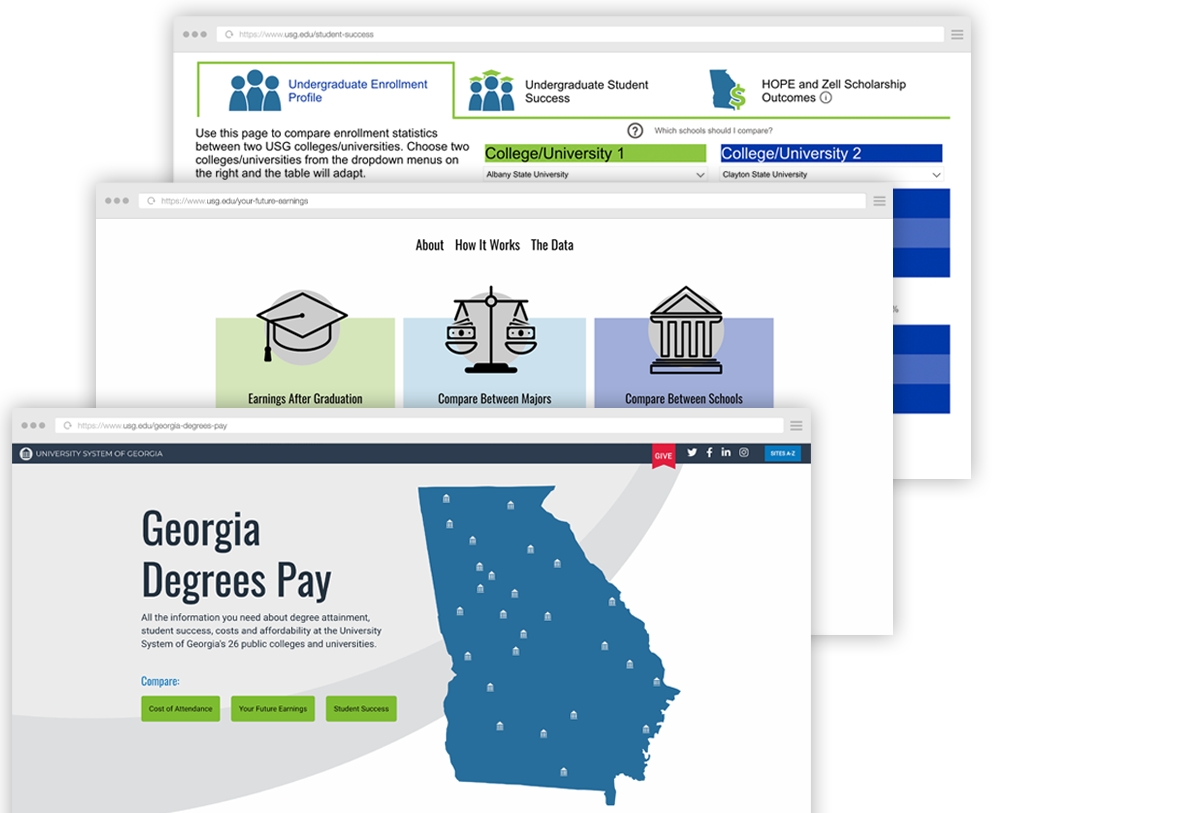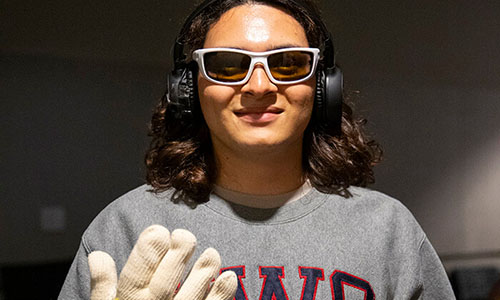USG extends test optional admissions for 2025-2026 academic year
The University System of Georgia (USG) will continue to temporarily waive test score requirements for admission for Academic Year 2025-2026 at 23 of the 26 USG institutions.


The University System of Georgia is comprised of Georgia's public colleges and universities, Georgia Archives and the Georgia Public Library Service. Visit our institutions page for a comprehensive list.

The University System of Georgia (USG) will continue to temporarily waive test score requirements for admission for Academic Year 2025-2026 at 23 of the 26 USG institutions.

A roundup of impactful stories from University System of Georgia's institutions.

The University System of Georgia has launched a new career planning tool for students at its 26 public colleges and universities to provide additional career counseling services and connect them to information about the field they want to work in.
Today, the Commission for Public Higher Education, a consortium of six public university systems, was unveiled. This Commission will create a first-of-its-kind accreditation model for public higher education institutions that will offer high-quality, efficient services prioritizing academic excellence, student outcomes and achievement.
The Board of Regents of the University System of Georgia named Dr. Christopher “Mike” Johnson president of the University of West Georgia, effective Aug. 1, 2025.
The Board of Regents of the University System of Georgia voted to name Dr. Christopher “Mike” Johnson as the sole finalist for president of the University of West Georgia.